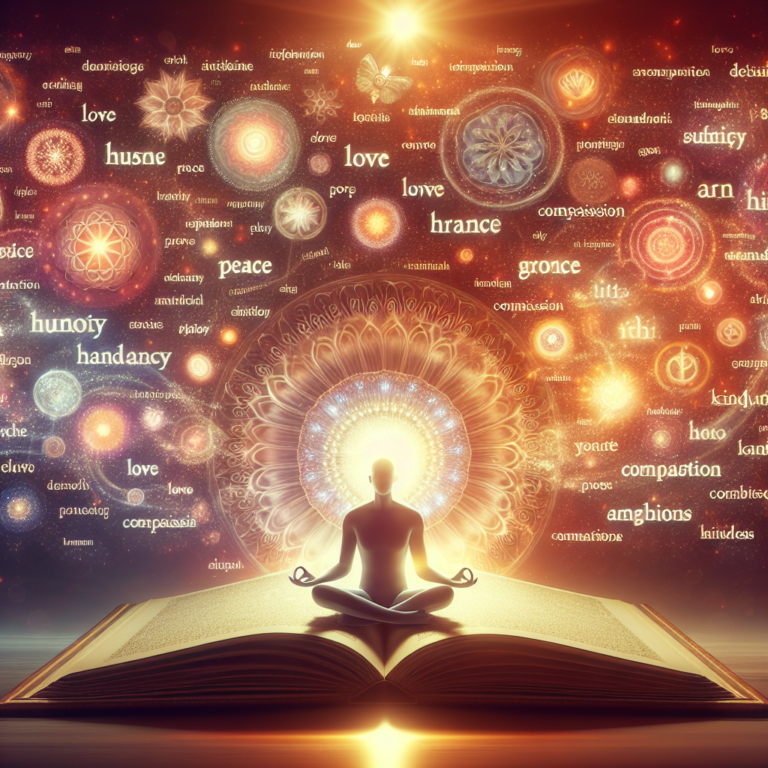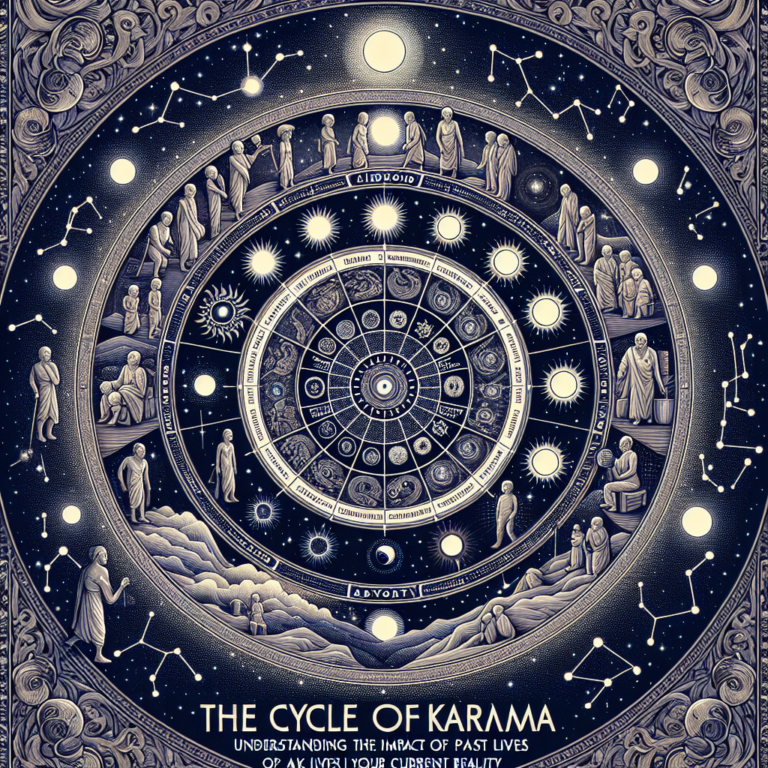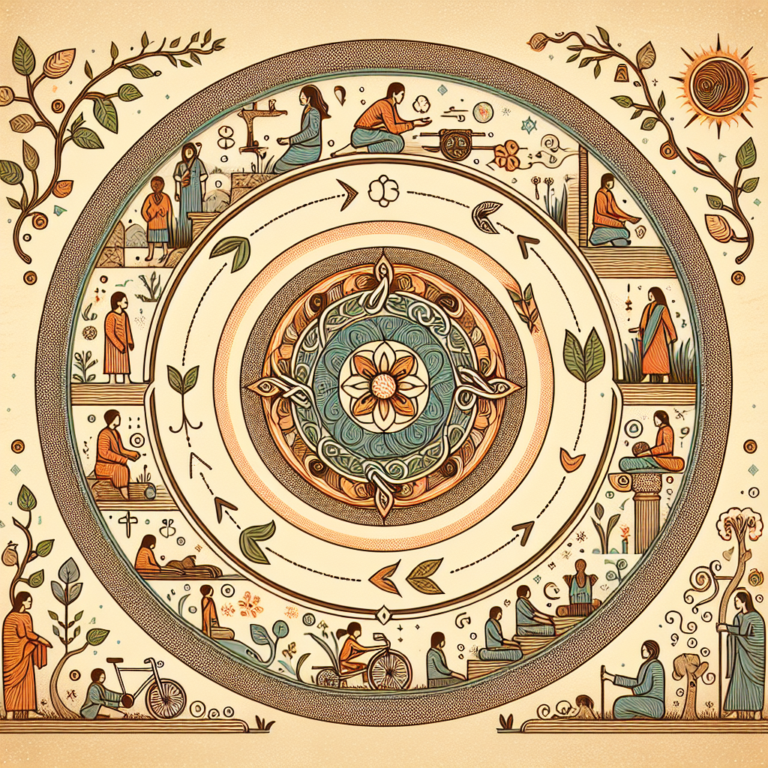The Ripple Effect: How Karma Shapes Our Lives and Decisions
Karma is an ancient concept, originating from Hindu and Buddhist philosophies, that suggests our actions—both good and bad—unfold in our lives as consequences. Though often oversimplified as “what goes around comes around,” the intricacies of karma provide a profound framework for understanding human behavior and decision-making processes. It invites us to consider not only how our actions affect our immediate circumstances but also how they create ripples that extend into the lives of others. This article dives deep into the ripple effect of karma, exploring how it shapes our lives and decisions.
Understanding Karma
At its core, karma is about balance and justice. It is a cosmic law suggesting that every action generates an energy that influences the universe. This could manifest in various ways, such as a person being rewarded for benevolent actions or facing consequences for harmful deeds. However, karma should not be confused with a form of cosmic punishment. Instead, it serves as a reminder of interconnectedness, urging individuals to approach life with a sense of responsibility.
The Ripple Effect: An Interconnected Web
The ripple effect is a metaphor for how a single action can lead to broader and far-reaching consequences. Imagine dropping a stone in a pond: the ripples radiate outward, affecting not only the water directly around the disturbance but also reaching the far edges of the pond. Similarly, our actions—whether they are positive or negative—can send waves through our community, influencing the behaviors and decisions of others.
Personal Accountability and Growth
Karma encourages personal accountability. When individuals realize that their actions have consequences—not just for themselves but also for those around them—they’re more likely to engage in self-reflection and work towards personal growth. Engaging in selfless acts, practicing kindness, and fostering a sense of community can lead to positive outcomes, creating a cycle of good karma that enriches both the giver and the recipient.
For example, if someone volunteers their time at a local shelter, they may inspire others in their circle to do the same. This single act can lead to a chain reaction of kindness, ultimately fostering a supportive environment and community growth. When people take responsibility for their actions and understand their impact, they tend to make decisions that contribute positively to society.
Relationships and Communication
In relationships, the ripple effect of karma plays a significant role. Trust, deceit, loyalty, and betrayal all have consequences that can extend beyond the relationship itself. When someone behaves deceitfully, it typically leads to a loss of trust not only in that specific relationship but also in the wider community. Friends and family may become wary, resulting in a cycle of suspicion.
For instance, a betrayal in a romantic relationship can create ripples of hurt that extend to family and friends, impacting their views about love and relationships. Those indirectly affected might become more cautious or even jaded as a result of witnessing the betrayal, underscoring how interconnected human relationships are.
On the contrary, positive actions—like open communication and forgiveness—can create a ripple effect of healing and trust. When one person demonstrates forgiveness, it can encourage others to abandon grudges, thus fostering a culture of understanding and compassion.
Decision-Making Guided by Karma
Understanding karma can significantly influence the decision-making process. When individuals are aware of the potential consequences of their actions, they’re more likely to make decisions that consider both their desires and the well-being of others. The concept of karma offers a lens through which we can evaluate our choices and their impact on our lives and the lives of those around us.
Conflict Resolution
In moments of conflict, thinking about the long-term effects of our reactions can lead to better outcomes. Reacting impulsively to anger may create short-term satisfaction but can lead to regret later on, creating negative karma that may resurface in the future. In contrast, choosing a path of understanding or compromise can lead to reconciliation, thereby sowing seeds of positive karma that can manifest as harmony in the long term.
Professional Choices
In the professional realm, individuals who strive for integrity tend to thrive in environments that promote collaboration and ethical practices. A workplace culture that recognizes the importance of positive actions, such as teamwork and fairness, cultivates an atmosphere in which employees feel valued and motivated. This fosters not only better decision-making but also more sustainable success for the organization as a whole.
Conclusion
Karma, with its principle of interconnectivity, serves as a guiding force in how we navigate our lives and decisions. The ripple effect we create through our actions informs not only our own experiences but also those of others around us. When we embrace the understanding of karma, we cultivate a deeper sense of responsibility in relationships, personal conduct, and decision-making. This awareness leads to a more compassionate and caring society, where every choice is viewed through the lens of its potential impact on others.
FAQs
Q1: What is karma?
A1: Karma is the belief that our actions have consequences that affect our lives and the lives of others. It suggests that both good actions lead to positive outcomes, while negative actions can lead to adverse consequences.
Q2: How can I create positive karma in my life?
A2: You can create positive karma by performing acts of kindness, being honest, helping others, and practicing forgiveness. Small, consistent positive actions contribute to a ripple effect of goodness.
Q3: Does karma always manifest in this lifetime?
A3: Many belief systems suggest that karma can manifest over multiple lifetimes, but others believe that the effects of one’s actions can still be felt in the present.
Q4: Can bad karma be changed?
A4: While the consequences of negative actions may be unavoidable, individuals can change their path by taking positive actions and making amends to those they’ve harmed.
Q5: How does karma affect relationships?
A5: Karma affects relationships by cultivating trust and integrity through actions. Positive interactions can nurture relationships, whereas negative actions can lead to mistrust and conflict.
It seems like your message got cut off or is incomplete. Could you please provide more details or specify what you need a prompt for? I’m here to help!, #Ripple #Effect #Karma #Shapes #Lives #Decisions, #Ripple #Effect #Karma #Shapes #Lives #Decisions, 1736733409, the-ripple-effect-how-karma-shapes-our-lives-and-decisions





